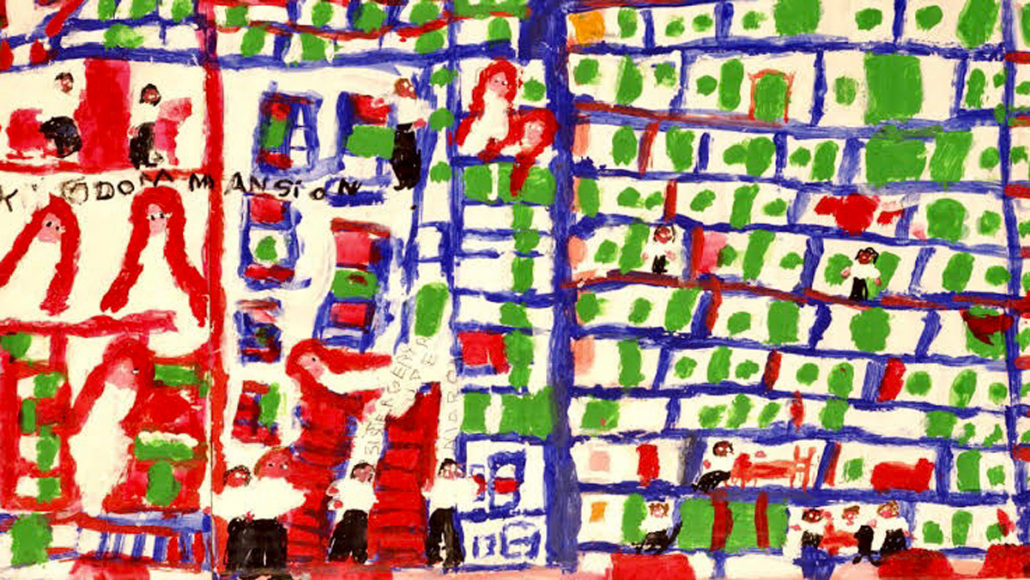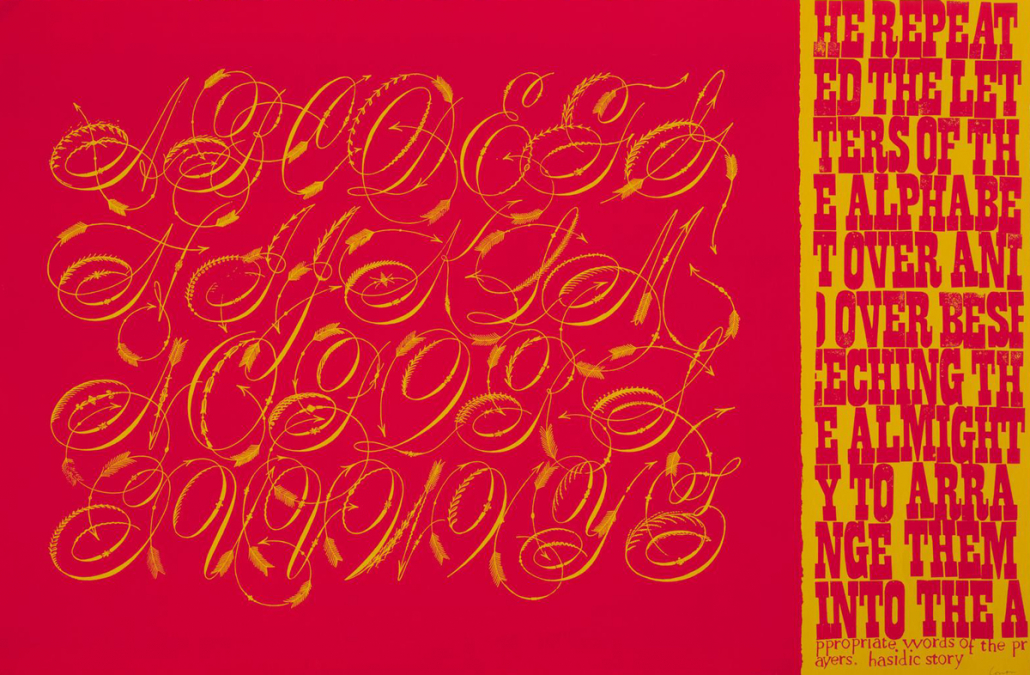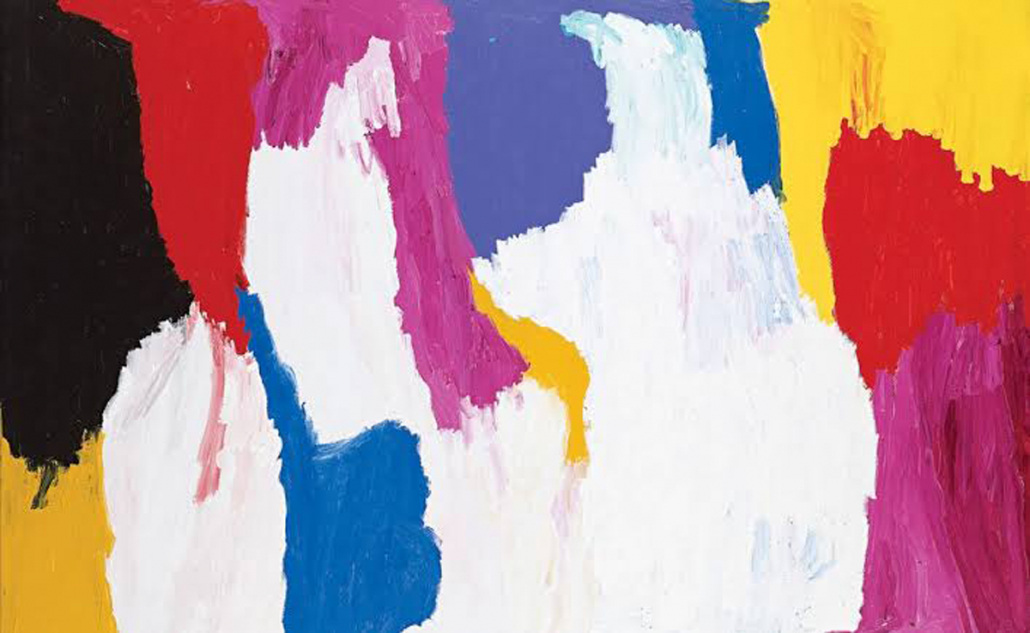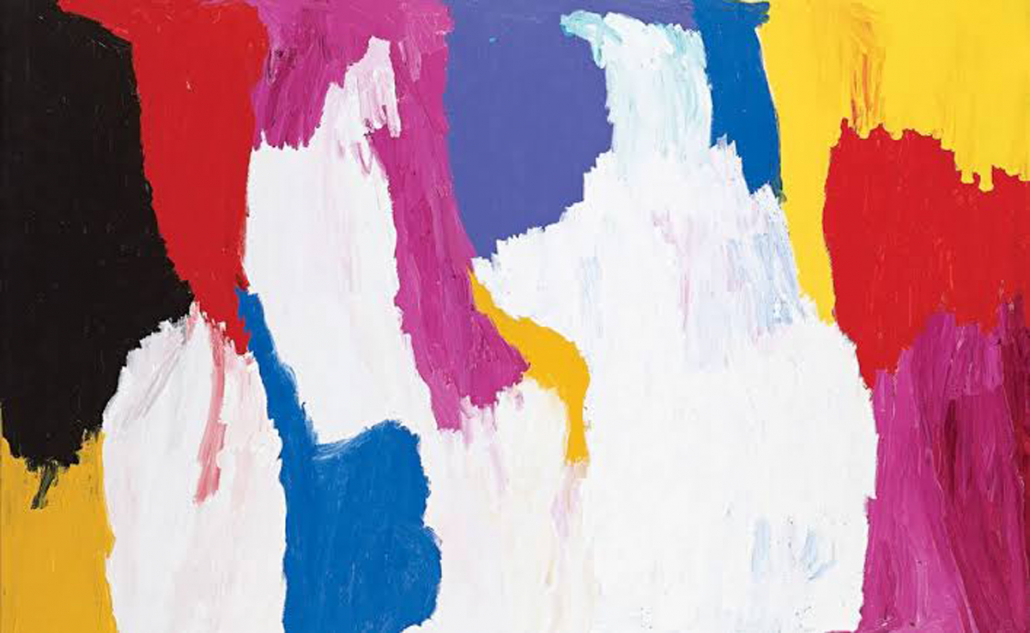Image: Mirdidingkingathi Juwarnda Sally Gabori, ‘Dibirdibi Country’, 2008, synthetic polymer paint on canvas.
‘Good eggs’
Andrew Collis
Ordinary Sunday 17, Year C
Genesis 18:20-32; Luke 11:1-13
Orient yourselves to God. Affirm God’s goodness and otherness. Express openness and desire for God’s future. Petition for basic, collective needs – ask to receive and commit to give. Acknowledge human frailty and finitude.
Orient, affirm, express, petition, acknowledge … with words (spoken, written, sung); by way of painting, dancing, ritual (devotional, liturgical); work, play, silence …
So, Jesus teaches us to pray … offering a model of prayer based on his own experience of life as dialogue, as call to meaning and to love. Persist, he says – ask, seek and knock – your prayer will change you and your prayer will change. For all good things – bread, fish, eggs … alphabets – can be bearers of Holy Spirit …
When I was a child, I used to pray every night. My father would come into my room and hear the prayer he’d taught me to say: “God bless Mummy. God bless Daddy. Sooty (my dog), Debbie, Karen, Julie (my sisters), all my friends. Please God help me be a very good boy. Amen.”
I don’t often think about this childhood ritual. I take it for granted. Today, though, it seems apt to wonder at the influence the practice has had in my life.
Not that I still pray those precise words. Not that I can connect in the same way to the sentiments expressed. Still, repeating the phrases, making time and space for them, means that the words “God”, “bless” and “good” – an honouring of family and home, a certain longing, striving – remain with me.
I remember discerning some kind of spiritual growth, a maturity in respect of prayer. When I was a little older, I used to pray before I had a school exam. “Please God, help me do well.” Then, “Please God, help me to concentrate.” And then, “Please God, help us all do our best.” I remember a kind of shock at hearing that prayer take shape – the first time I’d really prayed to “our” God.
We pray the Lord’s Prayer faithfully not by adhering to specific words (we have various versions in Matthew, Luke and early Christian teaching) but in grasping it as a model of prayer and life. Orient, affirm, express, petition, acknowledge … with words (spoken, written, sung); by way of painting (behold these prayerful works by Sister Gertrude Morgan, Corita Kent and Sally Gabori), dancing, ritual; work, play, silence …
That means my childhood prayer for my family and for “all my friends” is ever widened to include neighbours in space and time, strangers, enemies – those whom I forgive, those very different from me – Jews, Muslims, Hindus, pagans, secularists … and Christians – with whom I disagree.
And my childhood prayer for my dog is deepened, too. “It is not only humanity that can lay claim to addressing God as ‘our Father’”, writes biblical scholar Vicky Balabanski, “the whole earth community lays claim to God as the source of life and as sustainer – the fatherly and motherly aspects of God.”
Our intercessory prayers for today were composed at last week’s Liturgy Resource meeting and at the Park Café on Wednesday morning – thanks to Jane and Miriam – in response to the latest State of the Environment Report written by 30 independent scientists from around Australia. In face of dual biodiversity and climate crises, nothing short of radical prayer is called for.
Re-orient yourselves to God (source of life, beauty and diversity). Re-affirm God’s goodness and otherness (protection and restoration of habitats – numinous matter). Express openness and desire for God’s future (God after empire, economies of extraction and consumption, environmental mismanagement). Petition for basic, collective needs (First Nations justice, climate justice; freedom for life together).
Ask to receive and commit to give (clean air, clean water, clean energy – no new coal or gas mines). Acknowledge human frailty and finitude (save us – unwise, unkind and unimaginative – in the time of trial).
Praying with Jesus – in the Spirit of Abraham and all who engage in dialogue, in the struggle for justice – we participate in the saving of the world. Perhaps that’s a little grandiose.
Praying with Jesus – in the Spirit of Abraham and all who engage in dialogue, in the struggle for justice – we offer ourselves for the life of the world. For all good things – bread, fish, eggs … alphabets … creative and custodial species – can be bearers of Holy Spirit … Amen.

Image: Sister Gertrude Morgan (1900-1980) was a self-taught African-American artist, poet and preacher. Her visionary work depicts gospel themes: kin-dom, cross-cultural community. ‘Kingdom Mansion’ (1975).

Image: Sister Corita Kent (1918-1986) was a pop artist, art teacher and social justice activist. This lithograph from 1968, ‘words of prayer’, celebrates an Hasidic story of holy letters … the co-creativity of the human and divine.

Image: Mirdidingkingathi Juwarnda Sally Gabori (1924-2015) was a First Nations (Kaiadilt) artist who at age 81 began painting in an abstract-like style she developed to represent her Country, on the south side of Bentinck Island in Queensland. ‘Dibirdibi Country’ conveys beloved story places.




